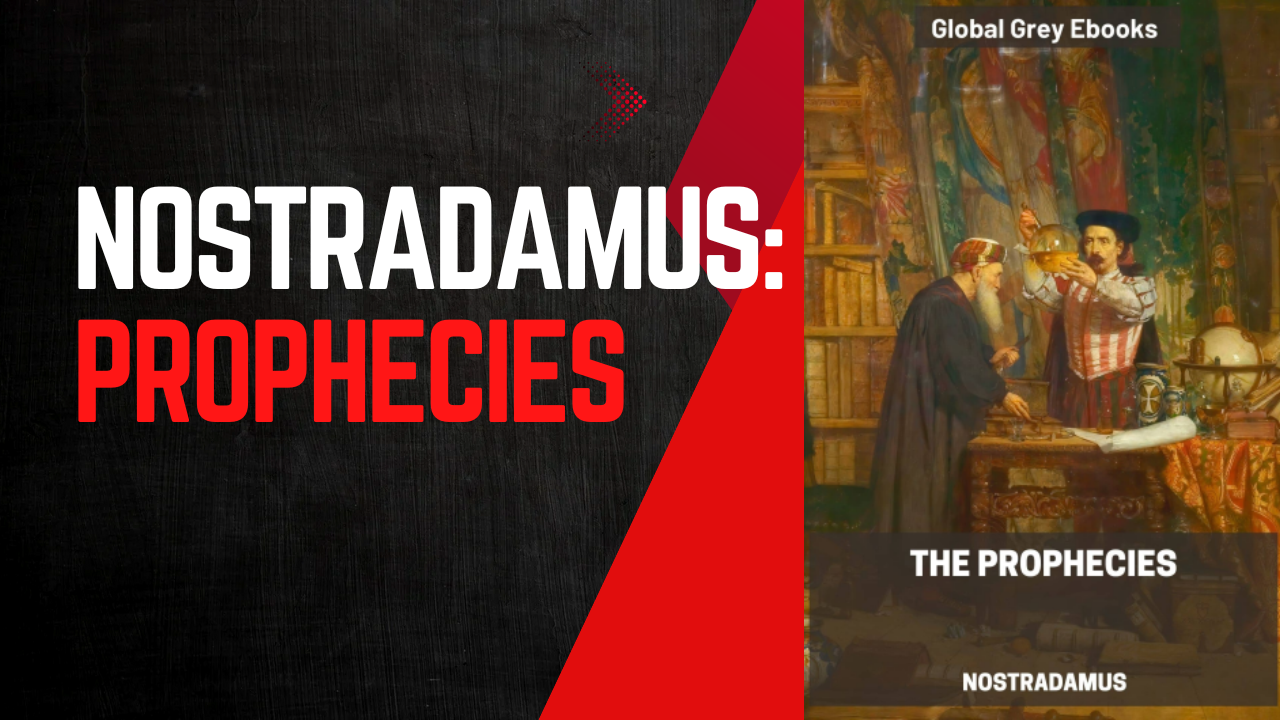
The provided text is a collection of excerpts from Michel de Nostradamus’s Prophecies, specifically Centuries VII-X and several prefatory sections. One preface is a letter to his son, Cesar, explaining the cryptic nature of his prophecies and the reasons behind their ambiguity. Another preface is a dedication to a king, offering similar justifications for the style of the prophecies. The Centuries themselves contain hundreds of quatrains—four-line poems—predicting numerous events, from plagues and wars to political upheavals, spanning from Nostradamus’s time to the year 3797. The excerpts demonstrate Nostradamus’s reliance on astrology and divine inspiration, as well as his attempts to avoid persecution for his writings.
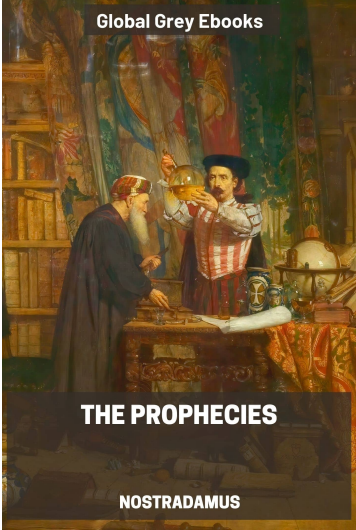
Frequently Asked Questions About Nostradamus’s Prophecies
- How did Nostradamus receive his prophetic abilities? Nostradamus attributes his prophetic abilities to a combination of divine inspiration and astronomical study. He states that the “divine power of Almighty God” provides the initial inspiration, which is then filtered through his understanding of astrology and the movements of celestial bodies. This process also involves a period of contemplation and “agreeable nocturnal studies”. It’s not purely a divine gift, but also a result of astrological analysis.
- What is the nature of Nostradamus’s predictions? Are they meant to be clear and precise? Nostradamus explicitly says that his writings are intentionally “ambiguous and enigmatic,” and “nebulous rather than plainly prophetic.” This is partly to avoid persecution from those in power who might not understand or accept his predictions, but also to allow people to understand things in their own time. He deliberately avoids giving clear dates and specific places to most of his prophecies, preferring instead to use symbolic language and astrological terms. He suggests that their meaning will become clearer over time as events unfold. He acknowledges in his letter to Henry II that he could date each quatrain but chose not to so not to cause difficulty for interpreters.
- Does Nostradamus believe his predictions are inevitable? While Nostradamus believes his prophecies stem from divine will and astronomical influences, he also acknowledges that “all is ruled and governed by the power of Almighty God.” There’s a sense that while his predictions are divinely inspired, they aren’t necessarily set in stone. He also writes that prophecy comes to pass partly as predicted. This implies a degree of flexibility and that events might not play out exactly as he has foreseen them. Human actions and choices, while not explicitly detailed, appear to have the ability to modify or even avert some of the predicted outcomes.
- What are some of the major themes or events Nostradamus predicts? Nostradamus’s writings are filled with references to cataclysmic events, including wars, plagues, famines, and natural disasters. He foresees the rise and fall of empires and shifts in religious and political power. Specifically, there are recurring themes such as a major world war, a devastating plague, a great conflagration, and significant shifts in power between the East and West. There is an explicit prediction of the end of the world with a great fire, with few places escaping damage, and the diminishment of rain. He does mention a return to a Golden Age. The text refers to periods of great upheaval and then a return to a more peaceful, and just, era.
- How does Nostradamus reconcile his role as a prophet with his Christian faith? Nostradamus is very clear in his writings that his prophetic abilities come from God, and that he is not a sorcerer or occultist. He emphasizes that his prophecies are inspired by “divine will alone,” and that he does not rely on magic. He also directly appeals to the Christian faith in his letter to Henry II, stating he will not write anything against the true Catholic faith and that he prays for God to defend him from evil men. He frames his predictions within a Christian framework, acknowledging divine authority and his subservience to God. However, he also uses his astrological knowledge and instinct to help with the prophecies.
- What role does astrology play in Nostradamus’s prophecies? Astrology is a crucial element in Nostradamus’s prophetic method. He speaks of using “astronomical assurances” and “planetary scrutiny” to gain insight into the future. He believes the movements and configurations of celestial bodies influence earthly events, and he meticulously calculated planetary positions when composing his prophecies. He also makes several references to different astrological signs and their effects on particular events. He doesn’t rely exclusively on astrology, noting he also uses his natural instinct and the divine.
- What are some of the more specific predictions related to geography and politics? Nostradamus makes numerous geographical and political predictions, often alluding to specific regions and nations. He references Italy often, including Rome, Florence and Milan, along with locations in France, Spain, and areas in the Middle East. He describes conflicts and shifts in power dynamics, involving various European and Middle Eastern nations and regions. He talks of naval battles near Greece and mentions regions in the far North and East. One prediction is that the “barren Dame” will be accepted by nations who were once the masters of the universe, and then by that group itself. There is a prediction of a Triumvirate that will last seven years. He also appears to predict conflict between a rising power in the East with a power in the North. There also seems to be a prediction that the monarchy will return after a time in the Republic and that there will be a return to the Golden Age. There are references to specific religious sects, sometimes referred to as the “shaven ones.”
- What is Nostradamus’s view on the nature of time and prophecy? Nostradamus views time as something that is both cyclical and linear. He discusses historical cycles and the return of certain patterns, particularly in his reference to a future golden age that had occurred before. He writes about “the three times” understood as “eternity whose unfolding contains them all.” He writes that past and future events can be seen in the present through images, and that future events are brought into awareness, but not too clearly, by “reasoning and intelligent being” that may not be “too obscure nor too clearly revealed.” He states that “through the aid of planetary scrutiny, I should like to tell you this. Eschewing any fantastic imaginings, you may through good judgement have insight into the future if you keep to the specific names of places that accord with planetary configurations, and with inspiration places and aspects yield up hidden properties, namely that power in whose presence the three times are understood as Eternity whose unfolding contains them all: for all things are naked and open.” He considers his prophecies to be part of a larger divine plan that extends far into the future, citing that his prophecies cover from his time until the year 3797.
Nostradamus Study Guide
Quiz
Instructions: Answer each question in 2-3 sentences.
- According to Nostradamus’ preface to his son, what are the sources of his prophecies, and why does he use ambiguous language?
- In the “Epistle to Henry II,” what reasons does Nostradamus give for dedicating his prophecies to the king and for using enigmatic language?
- According to Nostradamus, how do the celestial bodies relate to his predictions?
- In Century III, what are the consequences of a specific naval battle?
- In Century IV, what is said about the Moon in relation to the Sun and a “new sage?”
- In Century V, what does Nostradamus suggest about a religious leader who takes power in the future?
- In Century VI, what is said about a “great Chyren”?
- In Century IX, what is said about the year 1999?
- According to the Almanacs, what are some general themes of events predicted?
- What does Nostradamus say about the end of his “writing” in his letter to his son, and what does he hope his son will understand?
Quiz Answer Key
- Nostradamus claims his prophecies are inspired by the divine spirit and guided by astronomical observations. He uses ambiguous language to protect himself from those in power who would condemn his predictions if they were too clear, as well as to avoid unduly scandalizing delicate sensibilities.
- Nostradamus dedicates his prophecies to King Henry II to honor him and to secure his protection and understanding. He uses enigmatic sentences to avoid exposing secrets that could be dangerous and misinterpreted while providing enough clarity for eventual understanding.
- Nostradamus believes that celestial movements influence earthly events and are a key element in his ability to foresee the future. He claims that he integrates his calculations with natural instinct, which is also a key element in his understanding of the universe and its signs.
- The battle is fought between the “great Neptune” and a “red adversary.” The red adversary becomes pale with fear and causes great dread in the ocean.
- The moon is positioned over a high mountain in the full of night, and a “new sage” sees it. This sage is described as having a lone brain and is invited to be immortal. His eyes face south and hands are in his bosom, and his body is in a fire.
- Nostradamus suggests that this religious leader will rise from humble origins and be a threat to the Church. He will vex the priests as water fills a sponge.
- The great Chyren will be a world leader with great fame and will be loved and feared. His fame will reach beyond the heavens, and he will only accept the title of “Victor.”
- Nostradamus predicts that in July 1999, a “great King of Terror” will come from the sky and that this is the time that a “King of the Mongols” will come to power.
- The Almanacs predict a range of events, including trouble, famine, plague, war, and shifting power dynamics; they also mention natural disasters, revolts, and religious conflict. These themes indicate a volatile and transformative period.
- Nostradamus states that he’s ceasing to write in the preface and is instead entrusting his heart with the “key” to understanding his prophecies. He hopes his son will understand each prophecy in every quatrain.
Essay Questions
Instructions: Answer the following questions in well-developed essays.
- Analyze the role of religion and the divine in Nostradamus’s prophecies. How does he balance divine inspiration with natural observation?
- Discuss Nostradamus’s use of symbolism and metaphor. How does he use these elements to communicate his predictions, and what effect does it have on the text?
- Compare and contrast the “Preface to Cesar Nostradamus” and the “Epistle to Henry II”. What does each reveal about Nostradamus’s goals and methods, and how do these sections serve to frame the rest of the work?
- Examine the historical and cultural context of Nostradamus’s prophecies. How do 16th-century European events and beliefs inform his work?
- How is war characterized in Nostradamus’ prophecies? What predictions of conflict, political upheaval, and revolution does he make, and what causes and consequences are offered?
Glossary of Key Terms
- Astronomy: The scientific study of celestial objects, used by Nostradamus as a basis for his predictions.
- Astrology: The practice of using celestial bodies to make predictions about earthly events, which Nostradamus claims to use.
- Quatrain: A four-line stanza, the form in which Nostradamus wrote his prophecies.
- Enigmatic: Mysterious or obscure; Nostradamus uses this style to veil his predictions and to make them open to multiple interpretations.
- Prophecy: A prediction of future events, which Nostradamus claims is his role and purpose.
- Divine Inspiration: The influence or guidance from a supernatural power, said to be the origin of Nostradamus’s visions.
- Republic: A state in which supreme power is held by the people and their elected representatives. Nostradamus often references a future return to monarchy.
- Golden Age: A period of great peace, prosperity, and happiness. Nostradamus predicts a future time when this will return.
- Antichrist: A figure who is opposed to Christ and his teachings. Nostradamus predicts that this figure will come into power.
- Vulgar Advent: Nostradamus’s term referring to the coming of a new order or event.
- Triumvirate: A group of three men holding power. Nostradamus refers to such an alliance that will lead to a worldwide sect.
- Chyren: A mysterious and powerful figure, whose name is used throughout the prophecies.
- Aquilon: Meaning “the North”, this term is used to denote a specific region of power in the future.
- Ligurians: Pertaining to the region of Liguria in northwest Italy, and frequently mentioned in the text in relation to various conflicts.








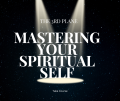

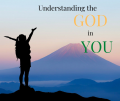
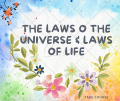










0 responses on "Nostradamus: Prophecies"